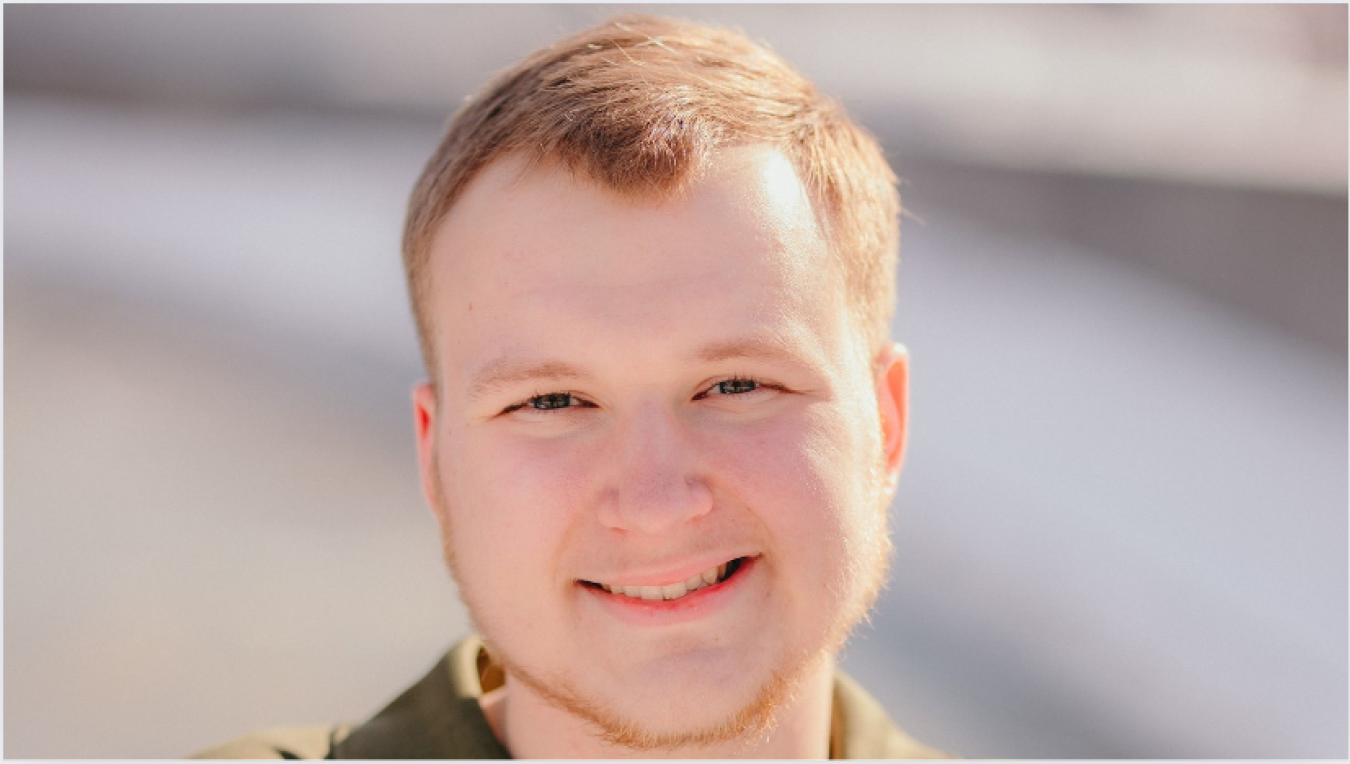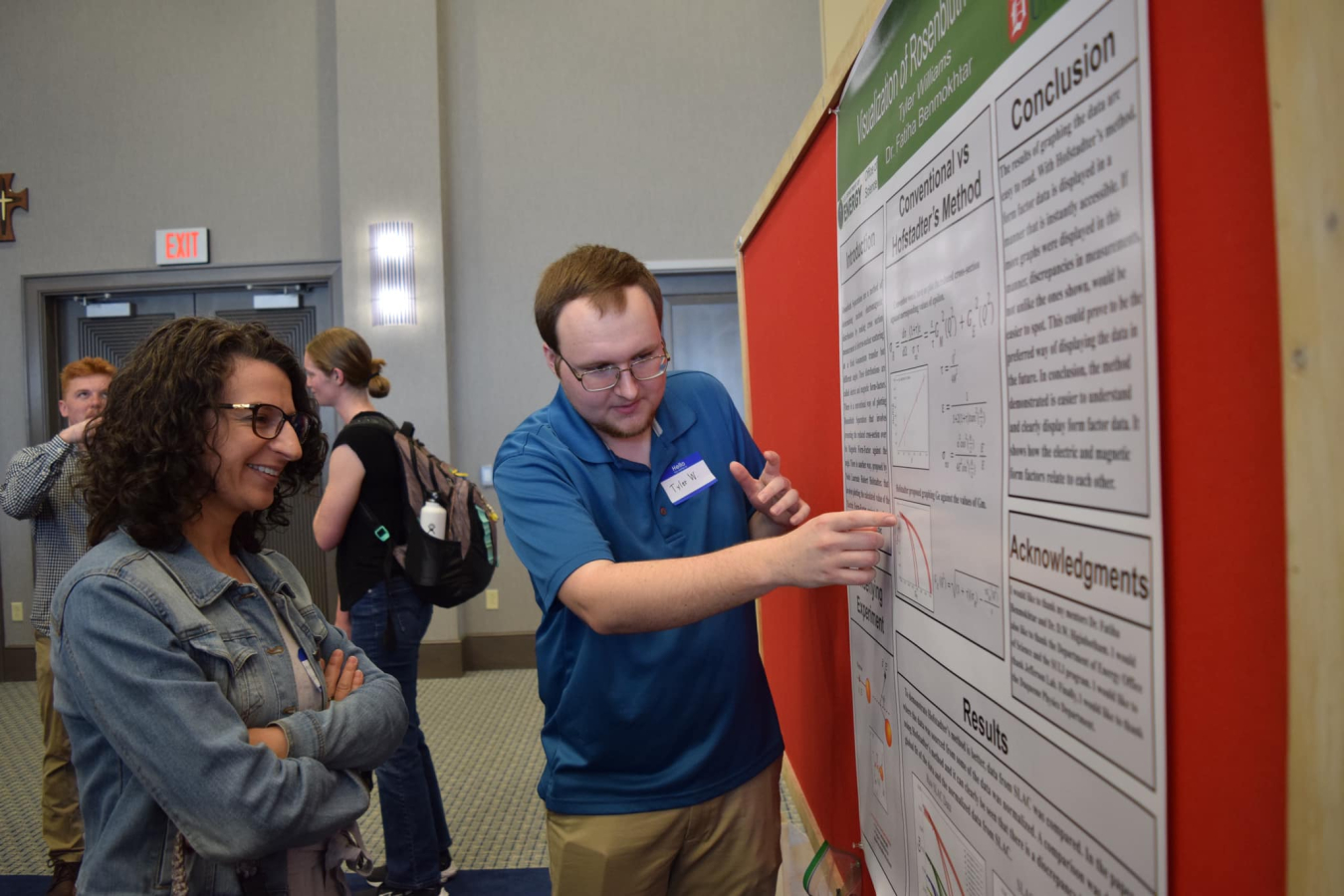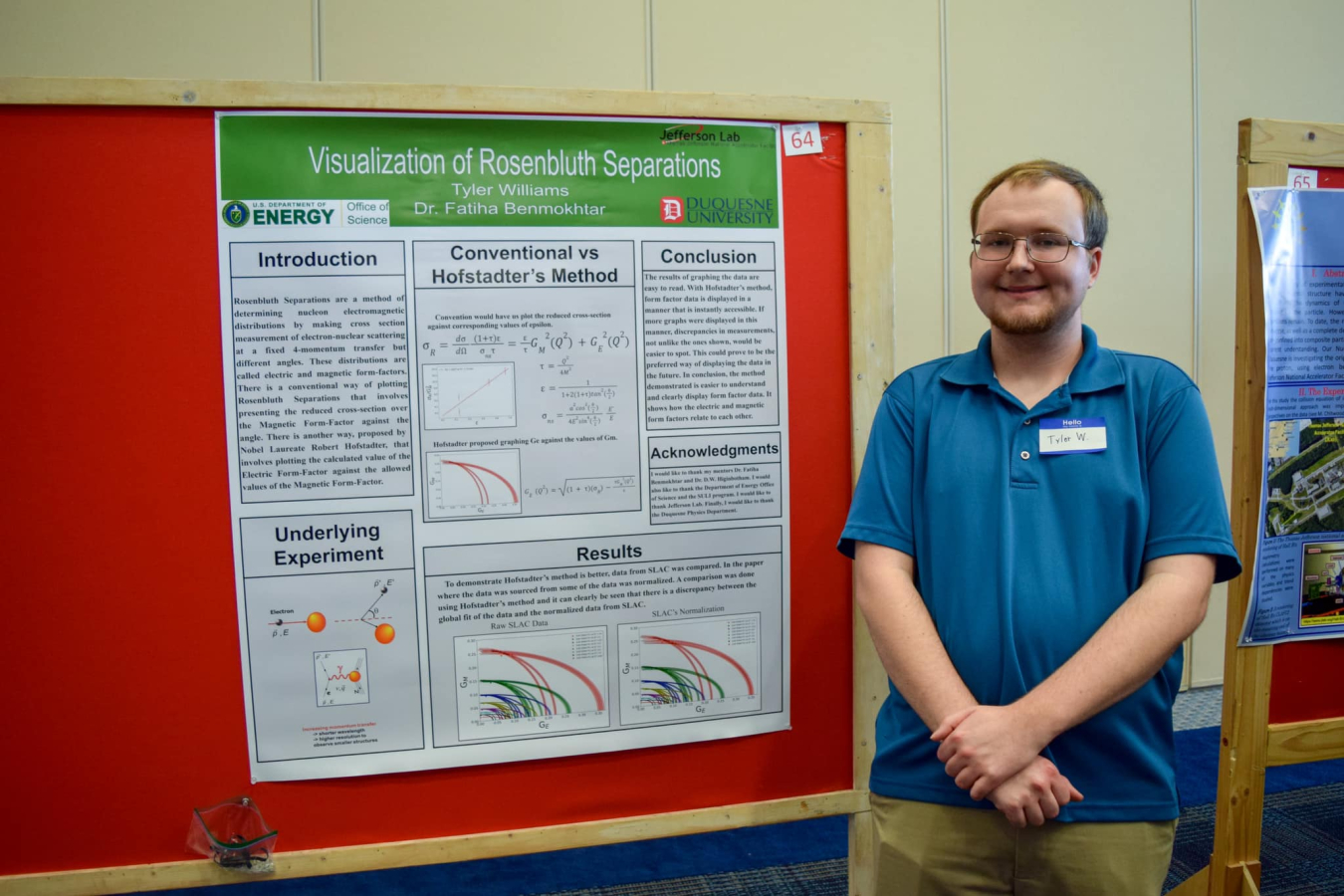Name: Tyler Williams; Institution: Duquesne University; Program: Science Undergraduate Laboratory Internships (SULI); Education Level: Undergraduate Student
August 20, 2024Jefferson Lab SULI student wins best presentation at Duquesne Undergraduate Research Symposium
As Tyler Williams searched for a career field, he questioned if physics was a suitable future for him. However, Williams discovered his love for physics through experience gained with a university professor and a research scientist. His passion for physics later resulted in an award-winning project conducted as part of DOE's Science Undergraduate Laboratory Internships (SULI) at DOE’s Thomas Jefferson National Accelerator Facility.

As Williams hunted for colleges to attend, he came across Duquesne University. During a Duquesne physics department open house, he met Fatiha Benmokhtar, a professor who has conducted research at Jefferson Lab for more than 24 years.
After choosing Duquesne and selecting physics as a major, Williams frequently visited Benmokhtar, doubting that physics was right for him. He later attended an outreach talk by Benmokhtar discussing her research with the CEBAF accelerator at Jefferson Lab.

Tyler Williams at the Duquesne Undergraduate Research Symposium
“This is the kind of research I want to do!” Williams said.
“He showed a lot of enthusiasm and excitement about particle physics research, which encouraged me to welcome him into my group early in his freshman year,” said Benmokhtar.
Later, Benmokhtar introduced him to the SULI program. SULI, managed by the DOE, aims to encourage next-generation scientists and maintain the United States' world leadership in science and technology. Each student is matched with a mentor at one of the national labs to get hands-on experience in their field of interest.
After being paired with Douglas Higinbotham, a senior scientist in the physics division at Jefferson Lab, the two began working with the Hofstadter method. This method studies the internal structure of the atom's nucleus.
Williams’ research project aims to use this method to efficiently display magnetization and electric charge in nucleons – protons and neutrons. In addition, he wants to take this method and display it using modern technology.
Working on this project virtually was a big challenge for Williams and Higinbotham. Williams attends school in Pennsylvania while Higinbotham works in Virginia. However, Williams was also guided in-person by Benmokhtar, who has mentored more than 40 students in research conducted in collaboration with Jefferson Lab.
One significant challenge Williams faced was his limited coding knowledge, which was crucial for programming his research. However, Higinbotham’s expertise played an important role in Williams’ success.
It’s the best way to determine if you want to pursue physics and engineering. SULI is a great opportunity to get some real experience doing physics.
“Besides presenting, Doug is really good at coding, especially Python,” Williams said.
Williams later presented his project at the Duquesne University Research Symposium on April 17, 2024, where, to his surprise, he won the Office of the Provost Award for Best Presentation.
“Working with him was fantastic. Doug was a great mentor and one of the best things I learned from him was how to do a good presentation,” Williams said. “That’s part of why I think my presentation went so well. He taught me that the best way to present information is not with words but pictures.”
While Williams has only spent one year in the SULI program, that was more than enough time for SULI and Jefferson Lab to impact his life. For Williams, SULI has provided experiences some college courses do not offer and helped Williams gain confidence in his career choice.
“It’s the best way to determine if you want to pursue physics and engineering. SULI is a great opportunity to get some real experience doing physics,” Williams said.
“Tyler, as a scientist, has grown immensely over our time together,” Higinbotham said. “He has much more confidence and has gotten much better at presenting research and public speaking.”

Tyler Williams at the Duquesne Undergraduate Research Symposium
Although physics and research can be challenging, Jefferson Lab provides the help and experience needed for young scientists to excel in their career fields. Teaching and mentoring play a big role in the overall mission at Jefferson Lab.
“Doing physics research with Jefferson Lab is very rewarding,” Benmokhtar said.
“It will teach you critical thinking, challenge your intellectual knowledge and expose you to international collaboration. You will have opportunities to travel, see the world and present your work at conferences. You will always find good mentors who will happily guide you.”
With the experience gained, Williams plans to continue working with his SULI mentors and begin the process of publishing his research this summer. His project was recently awarded a Jefferson Science Associates, LLC, grant to support him along the way.

